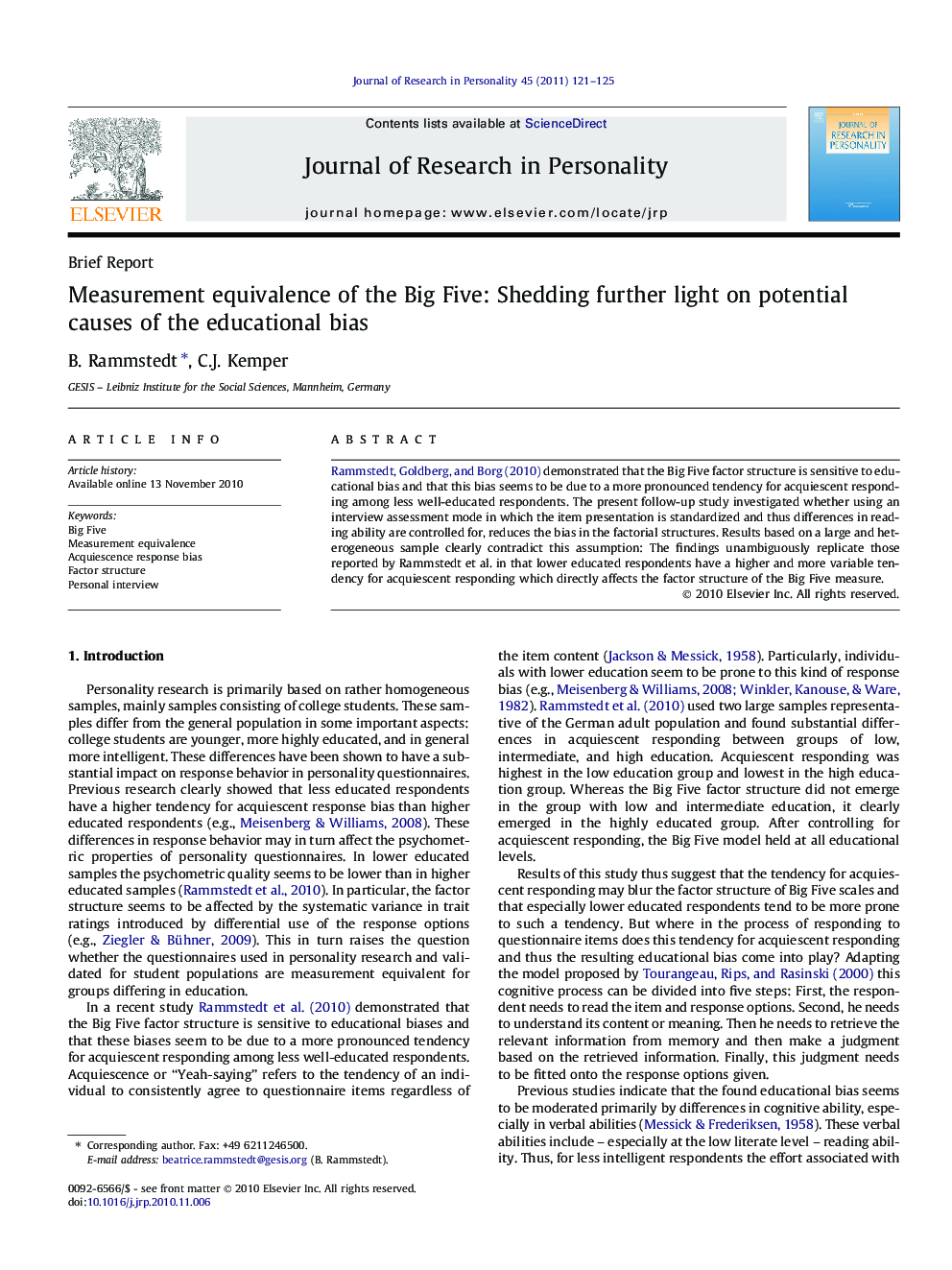| Article ID | Journal | Published Year | Pages | File Type |
|---|---|---|---|---|
| 951899 | Journal of Research in Personality | 2011 | 5 Pages |
Rammstedt, Goldberg, and Borg (2010) demonstrated that the Big Five factor structure is sensitive to educational bias and that this bias seems to be due to a more pronounced tendency for acquiescent responding among less well-educated respondents. The present follow-up study investigated whether using an interview assessment mode in which the item presentation is standardized and thus differences in reading ability are controlled for, reduces the bias in the factorial structures. Results based on a large and heterogeneous sample clearly contradict this assumption: The findings unambiguously replicate those reported by Rammstedt et al. in that lower educated respondents have a higher and more variable tendency for acquiescent responding which directly affects the factor structure of the Big Five measure.
